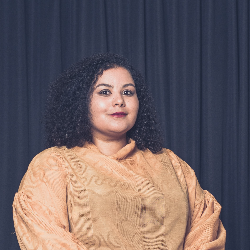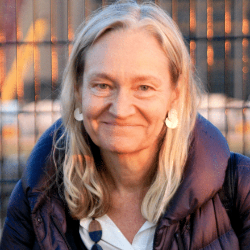
Rethinking traditional approaches to tackling unemployment in South Africa: Exploring feasible, well-designed grant-based approaches for the unemployed to complement active labour -market policies
Join us for a policy debate in which leading experts and policymakers explore the potential impact of grant-based approaches as a complement to active labour-market policies in denting unemployment in South Africa.
As the first instalment of the Econ 3X3 and SA-TIED policy debate series, this initiative aims to promote increased engagement between policymakers and researchers while providing a forum for discussing critical policy matters that impact South Africa.
Our panelists will delve into the potential impact of grant-based approaches on unemployment. They will also assess the relationships between such grants and other active labour market policies that could maximize their collective impact on unemployment, the feasibility of implementing such a grant, and the complexities surrounding it.
The debate draws on SA-TIED research and lessons from similar approaches in other developing countries. It is a unique opportunity to be part of a crucial conversation on rethinking traditional approaches to tackling unemployment in South Africa and shaping the future of the country's labour market and social welfare system.
This event is a hybrid gathering that offers both in-person and online attendance options. Participants who choose to join remotely will receive login details to access the virtual platform. For guests attending in person, a light lunch will be provided before the event, and refreshments will be available afterward.
About Active Labour Market Policies in the South African context
South Africa’s economic challenges are well-documented. While much progress has been made since the adoption of democracy in 1994, unemployment and inequality have remained stubbornly high, and poverty is still pervasive. The economic stagnation of the past decade, coupled with the economic shocks of the COVID-19 pandemic and war in Ukraine, carry real risks that progress will be derailed. The unemployment rate has recently reached new record highs and inequality remains very high. Low economic growth entrenches poverty and inequality, while high income inequality aggravates social fragmentation and poses a risk to long-run economic growth. Considering this, what tangible policy interventions could the government take to make a dent on unemployment?
The panel for this event will feature a diverse group of experts, including:
 Amanda Rinquest is the National Education and Training Manager at Black Sash, where she works on rights-based education, training community-based paralegals, and various aspects of social security in South Africa. For the past 3 years she has worked on the Black Sash campaign for Basic Income Support, calling for reform in the R350 Social Relief of Distress Grant and a permanent basic income for all those with little to no income. In 2022 she completed her LLM in Environmental Law. She completed her Bachelor of Social Science in 2009 and LLB in 20211 at the University of Cape Town. During her time at university, she was involved in various organisations involved with the work of racial and social inequality. After university Amanda volunteered and later worked at an NGO in Sudwala, Mpumalanga for 3 years. Her work included co-ordinating and teaching literacy classes, running sporting programs and medical-clinic evenings for rural farm workers.
Amanda Rinquest is the National Education and Training Manager at Black Sash, where she works on rights-based education, training community-based paralegals, and various aspects of social security in South Africa. For the past 3 years she has worked on the Black Sash campaign for Basic Income Support, calling for reform in the R350 Social Relief of Distress Grant and a permanent basic income for all those with little to no income. In 2022 she completed her LLM in Environmental Law. She completed her Bachelor of Social Science in 2009 and LLB in 20211 at the University of Cape Town. During her time at university, she was involved in various organisations involved with the work of racial and social inequality. After university Amanda volunteered and later worked at an NGO in Sudwala, Mpumalanga for 3 years. Her work included co-ordinating and teaching literacy classes, running sporting programs and medical-clinic evenings for rural farm workers.
 Haroon Bhorat currently serves on the Presidential Economic Advisory Council (PEAC), established by President Ramaphosa to generate new ideas for economic growth, job creation and addressing poverty in South Africa. Prof. Bhorat holds the DST/NRF SARChI Chair in Economic Growth, Poverty and Inequality Research. He is a non-resident Senior Fellow at the Brookings Institution; a Research Fellow at IZA, the Institute for the Study of Labour in Bonn; and is a member of the UCT College of Fellows.Prof. Bhorat has undertaken extensive work for several South African government departments – most notably the South African Department of Labour, the Presidency, and the National Treasury, including an appointment as Advisor on the South African Parliament’s High Level Panel on Acceleration of Change and Transformation. He served as an economic advisor to two past Ministers of Finance including Minister Pravin Gordhan, and previous Presidents Thabo Mbeki and Kgalema Motlanthe, formally serving on the Presidential Economic Advisory Panel.
Haroon Bhorat currently serves on the Presidential Economic Advisory Council (PEAC), established by President Ramaphosa to generate new ideas for economic growth, job creation and addressing poverty in South Africa. Prof. Bhorat holds the DST/NRF SARChI Chair in Economic Growth, Poverty and Inequality Research. He is a non-resident Senior Fellow at the Brookings Institution; a Research Fellow at IZA, the Institute for the Study of Labour in Bonn; and is a member of the UCT College of Fellows.Prof. Bhorat has undertaken extensive work for several South African government departments – most notably the South African Department of Labour, the Presidency, and the National Treasury, including an appointment as Advisor on the South African Parliament’s High Level Panel on Acceleration of Change and Transformation. He served as an economic advisor to two past Ministers of Finance including Minister Pravin Gordhan, and previous Presidents Thabo Mbeki and Kgalema Motlanthe, formally serving on the Presidential Economic Advisory Panel.
Prof. Bhorat sits on the editorial advisory board of the World Bank Economic Review, and he is a Board Member of the National Research Foundation (NRF) and UNU World Institute for Development Economics Research (UNU-WIDER). He received his PHD in Economics from Stellenbosch University, studied at the Massachusetts Institute of Technology, and was a Cornell University research fellow.
 Kate Philip is the Programme Lead on the Presidential Employment Stimulus in South Africa. Against the backdrop of the pandemic and its associated job losses, this stimulus has rolled out mass public employment programmes as well as livelihood and enterprise support measures. Since October last year, over 300,000 young people were placed as school assistants throughout the country, subsistence farmers received production input vouchers, environmental programmes were scaled up and over 30,000 people in the creative sector received support to create new work, amongst other programmes. Dr Philip also played a lead role in the design of South Africa’s Community Work Programme, which employs 240,000 people. Through the ILO, she supported the Government of Greece in the design of an employment programme at the height of the Greek crisis. She is author of ‘Markets on the Margins: Mineworkers, Enterprise Development and Job Creation’ (James Currey, London, 2018).
Kate Philip is the Programme Lead on the Presidential Employment Stimulus in South Africa. Against the backdrop of the pandemic and its associated job losses, this stimulus has rolled out mass public employment programmes as well as livelihood and enterprise support measures. Since October last year, over 300,000 young people were placed as school assistants throughout the country, subsistence farmers received production input vouchers, environmental programmes were scaled up and over 30,000 people in the creative sector received support to create new work, amongst other programmes. Dr Philip also played a lead role in the design of South Africa’s Community Work Programme, which employs 240,000 people. Through the ILO, she supported the Government of Greece in the design of an employment programme at the height of the Greek crisis. She is author of ‘Markets on the Margins: Mineworkers, Enterprise Development and Job Creation’ (James Currey, London, 2018).
 Michael Sachs is Adjunct Professor at the Southern Centre for Inequality Studies at the University of the Witwatersrand. He leads the centre’s Public Economy Project, a research program on fiscal policy and public finance. He teaches at the Wits School of Economics and Finance and serves as Deputy Chair of the Finance and Fiscal Commission, an independent constitutional body that advises government. Michael has worked for many years in public policy and political strategy in South Africa. He is a former head of the budget office at National Treasury. Prior to this he was based at the national headquarters of the African National Congress, where he coordinated economic policy and led the party’s research agenda.
Michael Sachs is Adjunct Professor at the Southern Centre for Inequality Studies at the University of the Witwatersrand. He leads the centre’s Public Economy Project, a research program on fiscal policy and public finance. He teaches at the Wits School of Economics and Finance and serves as Deputy Chair of the Finance and Fiscal Commission, an independent constitutional body that advises government. Michael has worked for many years in public policy and political strategy in South Africa. He is a former head of the budget office at National Treasury. Prior to this he was based at the national headquarters of the African National Congress, where he coordinated economic policy and led the party’s research agenda.
 Sibusiso Gumbi is a Director of Macroeconomic Policy at the National Treasury of South Africa. His role entails research and analysis on South African household vulnerabilities, inequality, poverty, employment, inclusion and transformation to inform sound policy advice on macroeconomic issues. The role also entails a number of stakeholder relations across many fora, including at the National Economic Development and Labour Council (NEDLAC) as well as a number of national departments across government. Sibusiso holds a BCom (Honours) in Economics from the University of Cape Town, and an MSc Finance in Economic Policy from the University of London SOAS.
Sibusiso Gumbi is a Director of Macroeconomic Policy at the National Treasury of South Africa. His role entails research and analysis on South African household vulnerabilities, inequality, poverty, employment, inclusion and transformation to inform sound policy advice on macroeconomic issues. The role also entails a number of stakeholder relations across many fora, including at the National Economic Development and Labour Council (NEDLAC) as well as a number of national departments across government. Sibusiso holds a BCom (Honours) in Economics from the University of Cape Town, and an MSc Finance in Economic Policy from the University of London SOAS.
 Thabi Leoka is an Economist who runs her own economic consulting and advisory company, Naha Investments. Thabi has worked for various organisations in the financial sector for over 23 years. She was appointed to the Presidential Economic Advisory Council in 2019. Thabi sits on various corporate boards. She also sits on the Statistic South Africa (Stats SA) Council where she chairs the Economic Committee. She was appointed by the Minister of Finance in 2018 to review the zero-rated products in order to support the poor and vulnerable in the country. Thabi started her career as an Economist at Investec Asset Management in South Africa and London. She has also worked as an Emerging Markets Economist at Barclays Capital in London and Head of Economic Research, SA at Standard Bank and the Chief Economist for SA at Renaissance Capital. Thabi has a PhD in Economics and an MSc in Economics and Economic History from the London School of Economics and MA (Distinction) from the University of the Witwatersrand. Thabi was named the Economist of The Year 2017 by ABSIP. She writes for various publication both in South Africa and internationally.
Thabi Leoka is an Economist who runs her own economic consulting and advisory company, Naha Investments. Thabi has worked for various organisations in the financial sector for over 23 years. She was appointed to the Presidential Economic Advisory Council in 2019. Thabi sits on various corporate boards. She also sits on the Statistic South Africa (Stats SA) Council where she chairs the Economic Committee. She was appointed by the Minister of Finance in 2018 to review the zero-rated products in order to support the poor and vulnerable in the country. Thabi started her career as an Economist at Investec Asset Management in South Africa and London. She has also worked as an Emerging Markets Economist at Barclays Capital in London and Head of Economic Research, SA at Standard Bank and the Chief Economist for SA at Renaissance Capital. Thabi has a PhD in Economics and an MSc in Economics and Economic History from the London School of Economics and MA (Distinction) from the University of the Witwatersrand. Thabi was named the Economist of The Year 2017 by ABSIP. She writes for various publication both in South Africa and internationally.
 Join the network
Join the network